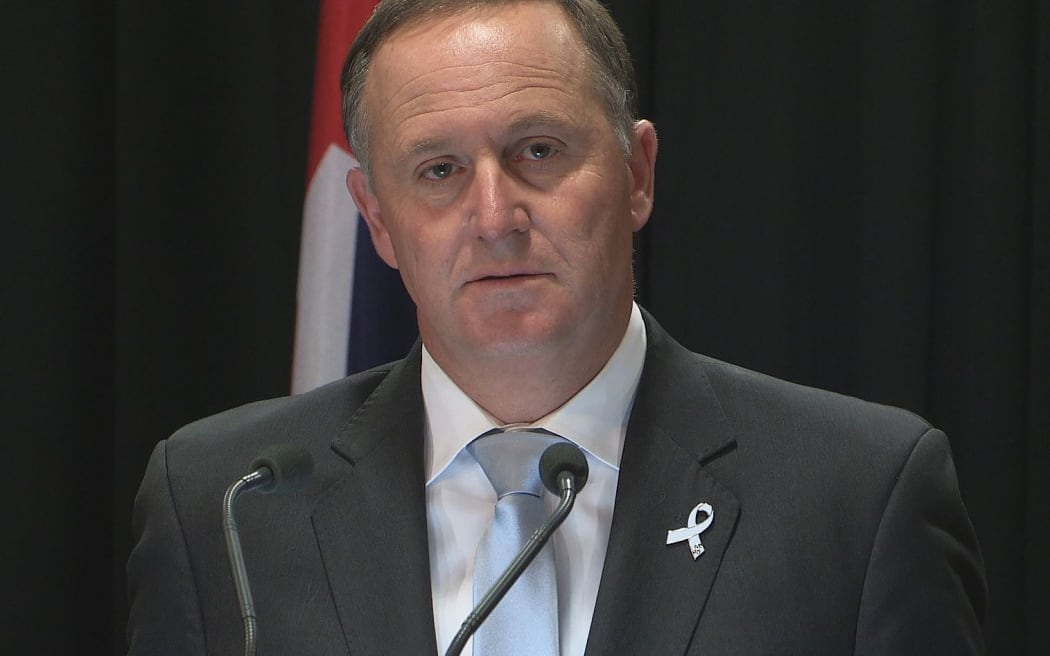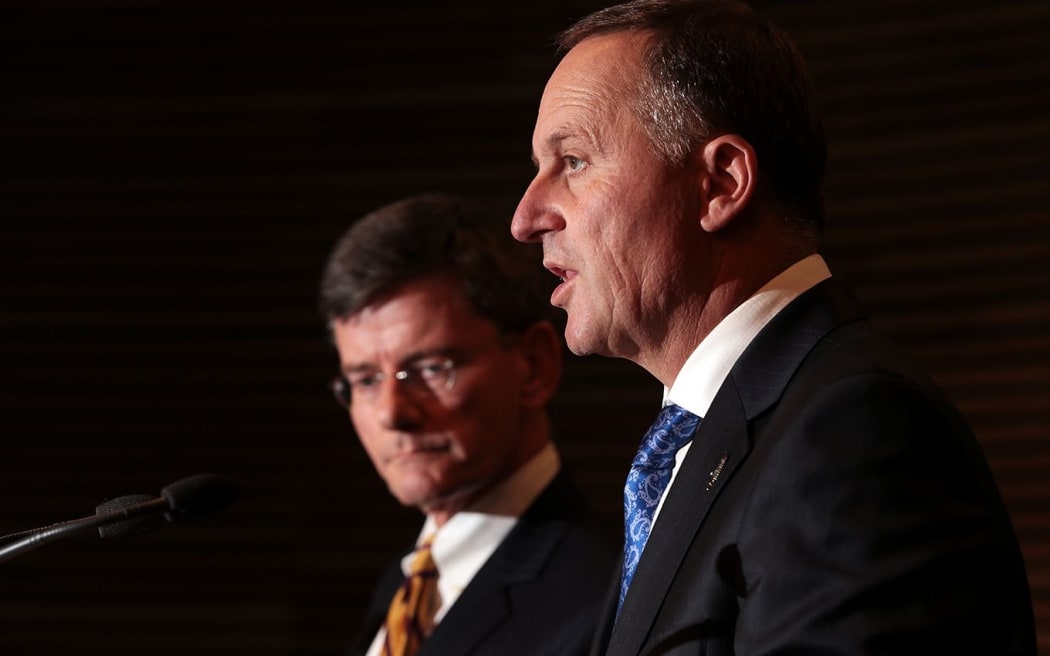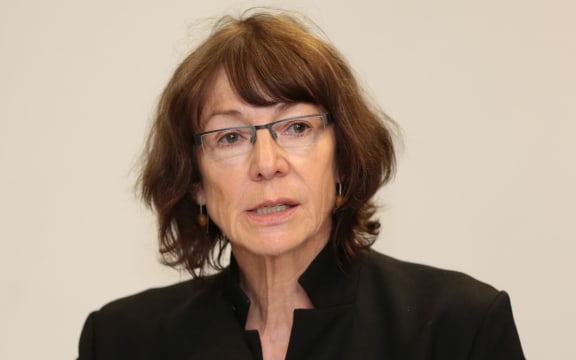The Inspector-General of Intelligence and Security, Cheryl Gwyn, apparently wrote two reports into the way the SIS released information embarrassing to former Labour Party leader Phil Goff in 2011.

For the first time, under John Key's leadership, SIS staff began communicating directly with his political staff. Photo: RNZ / Diego Opatowski
There is the report Ms Gwyn released publicly on Tuesday which found the Security Intelligence Service had released inaccurate and misleading information leading to unfounded criticism of Mr Goff.
This report also found that staff in Prime Minister John Key's office had passed on information to right-wing blogger Cameron Slater about briefings the then SIS director, Warren Tucker, had said he had given to Mr Goff about speculation Israeli spies had been caught up in the February 22 earthquake in Christchurch in 2011.
The other report - the one Mr Key apparently received - does not find that his staff played any part in feeding Mr Slater information or in helping the blogger make his Official Information Act request to the SIS.
John Key is adamant the report finds no such thing. It's a line repeated by his ministers, including the Attorney-General Chris Finlayson.
Yet on page 63 of the report Ms Gwyn states: "I did, however, find that Mr Ede provided the details of relevant documents to Mr Slater and was in fact speaking to Mr Slater by phone at the exact time that Mr Slater submitted his OIA request."
Or earlier on page 50 of the report: "Neither Mr de Joux nor Mr Ede acted inconsistently with any obligation to NZSIS when Mr Ede disclosed this information to Mr Slater for political purposes after being told it by Mr de Joux."
At the time, Jason Ede was a political adviser in Mr Key's office and Mr de Joux deputy chief of staff.

Cameron Slater - right-wing blogger. Photo: Supplied
The report does find there was no political collusion on the part of the SIS in releasing the information. But it points out there was a risk of its political neutrality being questioned because it was communicating directly with Mr de Joux, another political appointee.
Why then is Mr Key so emphatic that his staff were not involved when the report is clear they were?
Why too did he deny - not once, but twice - that he had had any contact this week with Cameron Slater over the report?
Mr Key was forced to rush to Parliament late on Wednesday afternoon to correct his answers and admit he had engaged in an exchange of text messages with Mr Slater about allegations Phil Goff had breached the embargo on the report.
All this is happening at the same time the Government is rushing through Parliament legislation to give more powers to the SIS to monitor people it suspects have links to terrorism.
Mr Key and his close associates appear to be banking on public indifference to details about his relationship with Cameron Slater and to concerns about the way information from the SIS was used for political purposes. They believe the public do not care.
Yet this is a matter which should be of significant public interest.
The Prime Minister's Office and the SIS are two powerful institutions of the State. Suggestions their powers have been misused or even abused must be taken seriously.

Chris Finlayson, left, has taken over as the minister responsible for the country's spy agencies from John Key. Photo: RNZ / Diego Opatowski
PM's changes to SIS
In her report, Cheryl Gwyn stops short of saying there was any political collusion on the part of the SIS, but does damn it for acting unprofessionally in the way it released information.

Inspector-General of Intelligence and Security Cheryl Gwyn - says the SIS had acted unprofessionally. Photo: RNZ
Much of the difficulties appear to have stemmed from changes the Prime Minister made to the way the SIS interacted with his office. For the first time, under his leadership, SIS staff began communicating directly with his political staff.
That helped create difficulties around perceptions of political neutrality and allowed those staff to take advantage of their access to information to feed Mr Slater.
Mr Key believes making staff responsible for what he calls administrative issues to do with the SIS was a sensible move.
Yet one of the Inspector-General's key recommendations was that the SIS should place its own staff member in the office of its responsible minister, now Chris Finlayson, rather than rely on the minister's own staff.
Under the new director of the SIS, Rebecca Kitteridge, that appointment has been made.
Ms Gwyn's report does not inquire into the role of John Key. Under the legislation, she has no power to inquire into [the propriety of] any action taken by the minister.
But, given the changes he made, Mr Key must take responsibility for what has happened. Ultimately as the minister in charge of both the SIS at the time and his own office, he is responsible for the actions they took.
At the very least, Mr Key's oversight of the intelligence agencies has been inept. It is likely any other minister would have been sacked.
Maybe that is why he has given up responsibility for the SIS and Government Communications Security Bureau and passed them on to Mr Finlayson.
Follow Brent Edwards on Twitter @rnzgallerybrent

